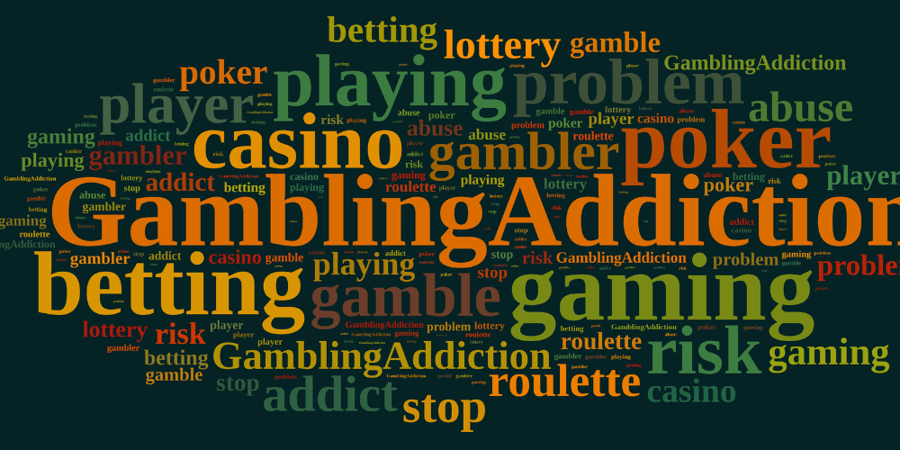By Rick Benson
Gambling refers to the act of wagering or betting on an event or game with the hope of winning money or other valuable prizes. Gambling can take many forms, including casino games, sports betting, lottery games, and online gambling. In a world that has become very digital, it is now easier to gamble anytime and any place.
In gambling, players typically place a bet or stake on the outcome of a particular event or game, and the result of that event or game determines whether they win or lose. Gambling can be a form of entertainment for some people, while for others, it can become a serious addiction that leads to financial and personal problems.
It is important to note that in many jurisdictions, gambling is regulated and may be restricted to certain types of games or activities. It is always important to gamble responsibly and within your means, and to seek help if you believe that you may have a problem with gambling.
Types of Gambling
Casino Gambling
This includes games such as slot machines, roulette, blackjack, craps, baccarat, and poker, which are played in brick-and-mortar or online casinos.
Sports Betting
This involves betting on the outcome of a sports event, such as football, basketball, horse racing, or boxing.
Lottery Games
This involves buying a ticket and hoping to win a prize, which can range from a small amount of money to a life-changing jackpot.
Online Gambling
This includes a variety of games that can be played on the internet, such as online poker, online slots, or online sports betting.
Social Gambling
This involves playing games of chance with friends or family, often for small stakes.
Bingo
This involves buying a card with a grid of numbers and waiting for numbers to be drawn at random. The first person to mark off all their numbers typically wins a prize.
Raffles
This involves purchasing a ticket for a chance to win a prize, which is typically determined by a random drawing.
Charitable Gambling
This includes games of chance that are operated by non-profit organizations, such as churches or schools, with the proceeds going to a charitable cause.
It is important to note that the legality of these types of gambling can vary by jurisdiction, so it is important to understand the local laws and regulations before engaging in any type of gambling activity.

Types of Gamblers
Recreational Gambler
A recreational gambler is someone who engages in gambling as a form of entertainment or leisure activity, rather than as a source of income or with the intention of making a profit. Recreational gamblers typically set aside a certain amount of money specifically for gambling and view it as a form of entertainment, like going to a movie or attending a sporting event.
Recreational gamblers often have a limit on how much they are willing to lose and are able to gamble responsibly without it negatively affecting other areas of their life. They may enjoy a variety of gambling activities, such as playing slots, betting on sports, or participating in card games with friends.
Social Gambler
A social gambler is someone who engages in gambling activities for social reasons, such as spending time with friends or participating in a group activity. Social gambling typically involves low-stakes or friendly wagering, and the primary purpose of the activity is to have fun and socialize with others.
Social gambling can take many forms, including playing card games or board games with friends for small amounts of money, participating in a friendly sports betting pool, or buying lottery tickets with coworkers. It is often considered a casual form of gambling, and participants may not take the activity too seriously.

Professional Gambler
A professional gambler is someone who makes a living primarily through gambling. This type of gambler typically has a deep understanding of the game or games they play and uses strategy and skill to consistently win over the long term.
Professional gamblers may focus on a particular type of game, such as poker, sports betting, or horse racing, and often have a significant amount of experience and knowledge in their chosen field. They may also have a network of contacts and use various resources to gain an edge over their competition.
Professional gamblers often have a high level of self-discipline and emotional control, as well as the ability to manage their bankroll effectively to minimize risk and maximize profits. They may also be able to analyze data and statistics to make informed decisions and adjust their strategy as needed.
It is important to note that becoming a professional gambler can be a high-risk endeavor, and it is not a viable option for most people. The vast majority of gamblers will lose money over time, and professional gamblers often face significant financial and emotional stress. It is important to gamble responsibly and understand the risks associated with gambling before engaging in any form of gambling activity.
Problem Gamblers
Problem gambling, also known as compulsive gambling or gambling disorder, is a serious and potentially addictive behavior that can have negative consequences on a person's life. Problem gamblers are individuals who struggle to control their gambling habits and continue to gamble despite experiencing negative consequences, such as financial difficulties, relationship problems, or other issues.Some signs of problem gambling may include:
- Spending more time and money on gambling than intended
- Feeling the need to increase the size or frequency of bets in order to get the same level of excitement
- Lying to loved ones about the extent of gambling activity
- Borrowing or stealing money to finance gambling
- Neglecting other responsibilities, such as work or family obligations, in order to gamble
Problem gambling can be caused by a variety of factors, including a genetic predisposition, environmental factors, or underlying mental health issues.
Get Help for Gambling Addictions
Gambling addiction can be difficult to overcome, especially without the help of trained professionals. At Algamus Gambling Treatment Center, we provide residential treatment for all types of gambling disorders.
If you feel that you or a loved one are struggling with gambling addiction, we encourage you to contact our gambling counselors for more information about our treatment process and how we can help.



